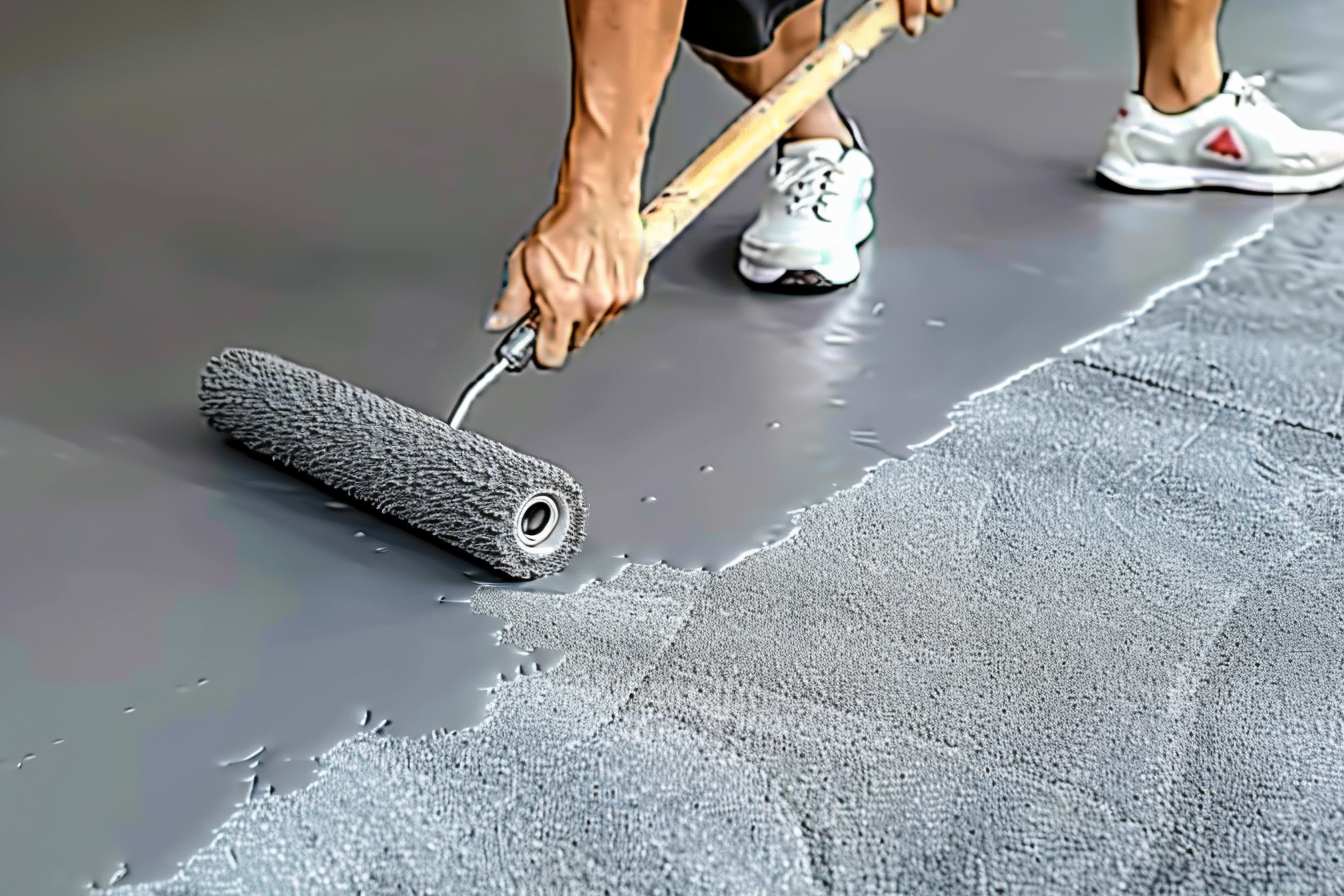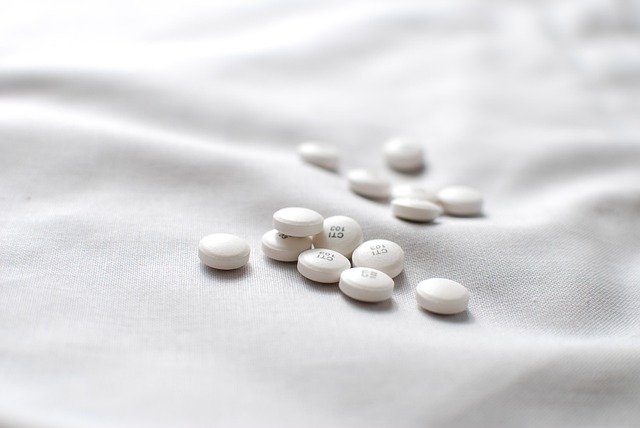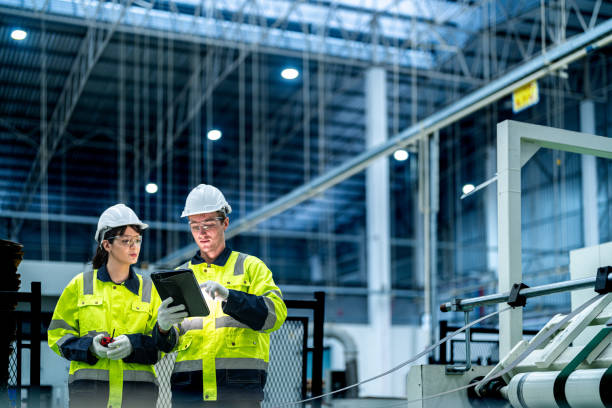Epoxy Flooring: A Durable and Stylish Solution for Your Home and Garage
Epoxy flooring is a sleek, durable solution for garages, basements, and industrial spaces. Resistant to stains and easy to clean, this versatile flooring adds a polished look and long-term protection. See why epoxy flooring could be best suited for your needs.

What is Epoxy Flooring and How Does It Work?
Epoxy flooring consists of a two-part system—epoxy resin and a hardener—that chemically react when mixed to form a rigid, plastic-like material with strong adhesive properties. Unlike conventional paint, epoxy creates a chemical bond with properly prepared concrete, resulting in a surface that’s substantially stronger than the concrete itself. The curing process transforms the liquid mixture into a solid polymer coating that’s extremely durable and resistant to impacts, abrasions, and chemical spills.
The thickness of epoxy floor coating typically ranges from 2 to 3 millimeters, providing a seamless, non-porous surface that prevents dust accumulation and makes cleaning effortless. High-quality epoxy systems can last 10-20 years before needing replacement, making them a long-term flooring solution for areas that experience high traffic or harsh conditions.
Benefits of Epoxy Flooring for Homes
Epoxy flooring for homes offers numerous advantages that traditional flooring options can’t match. First and foremost is its exceptional durability—epoxy floors can withstand heavy furniture, dropped tools, and even vehicle traffic without cracking or chipping. This makes it ideal for garages where tools might be dropped or heavy equipment stored.
The seamless, non-porous nature of epoxy makes it remarkably easy to clean and maintain. Spills—whether water, oil, or chemicals—simply wipe away without staining the surface. For families with children or pets, this easy-clean feature is particularly valuable. Additionally, epoxy flooring is inherently moisture-resistant, making it suitable for basements or areas prone to dampness.
From an aesthetic perspective, epoxy flooring for homes comes in countless colors, patterns, and finishes. Options range from solid colors to metallic finishes, terrazzo-like designs, or even custom patterns. Many homeowners choose to incorporate flake systems that add texture and dimension while hiding minor imperfections in the concrete beneath.
Types of Epoxy Floor Coating Systems
Several types of epoxy floor coating systems are available, each designed for specific applications and performance requirements:
-
Water-based epoxy: Offering good adhesion and a matte finish, water-based systems are more environmentally friendly with lower VOCs. They’re ideal for interior spaces with adequate ventilation but may not offer the same durability as solvent-based options.
-
Solid epoxy: These 100% epoxy systems provide maximum durability with excellent chemical and abrasion resistance. They’re perfect for high-traffic areas and garages but require professional installation due to their quick curing time.
-
Self-leveling epoxy: This specialized formulation creates an ultra-smooth, perfectly level surface that conceals minor imperfections in the underlying concrete. It’s ideal for showcasing metallic pigments or decorative effects.
-
Epoxy mortar systems: Combining epoxy with quartz sand, these systems create the most durable flooring option available. They’re typically used in industrial settings or commercial kitchens where extreme conditions exist.
-
Epoxy flake systems: By broadcasting colored vinyl chips into wet epoxy, installers create textured, decorative surfaces that hide imperfections and provide slip resistance. These are among the most popular options for residential garages and basements.
The Epoxy Flooring Installation Process
Professional epoxy flooring installation typically follows a multi-day process to ensure optimal results. First, concrete preparation is essential—the surface must be thoroughly cleaned, degreased, and etched or ground to create an ideal bonding surface. Cracks, holes, or damage must be repaired before application.
After preparation, professionals apply a primer coat to enhance adhesion and prevent air bubbles. The main epoxy layers are then applied, with decorative elements like color flakes broadcast into the wet epoxy if desired. Multiple coats may be necessary depending on the system chosen. Finally, a clear topcoat seals everything, providing additional protection and the desired finish (glossy, satin, or matte).
Proper curing time between coats and before returning the space to service is critical. While some epoxy flooring may feel dry within hours, full curing that allows for vehicle traffic or heavy furniture typically takes 5-7 days. Professional installation ensures proper mixing ratios, application techniques, and curing conditions.
Cost Considerations for Epoxy Flooring
The cost of epoxy flooring varies significantly based on several factors including the quality of materials, complexity of the installation, condition of the existing concrete, and your geographic location. Understanding these price points helps in planning your flooring project effectively.
| System Type | Average Cost (Materials + Labor) | Typical Lifespan | Best For |
|---|---|---|---|
| DIY Epoxy Kits | $3-$7 per sq ft | 2-5 years | Homeowners on budget, temporary solutions |
| Professional Water-Based | $3-$5 per sq ft | 3-7 years | Residential spaces with light traffic |
| Professional Solid Epoxy | $7-$12 per sq ft | 10-20 years | Garages, high-traffic areas |
| Decorative/Metallic Epoxy | $10-$15 per sq ft | 10-15 years | Showpiece areas, living spaces |
| Industrial-Grade Systems | $12-$20 per sq ft | 15-20+ years | Commercial/industrial applications |
Prices, rates, or cost estimates mentioned in this article are based on the latest available information but may change over time. Independent research is advised before making financial decisions.
Additional costs may include concrete repairs ($2-$5 per square foot), floor grinding or shot blasting ($1-$3 per square foot), and removal of existing flooring ($1-$4 per square foot). Most professional installers offer warranties ranging from 5-15 years depending on the system selected.
Maintenance and Care for Epoxy Floors
One of the most appealing aspects of epoxy flooring is its minimal maintenance requirements. Regular sweeping and occasional wet mopping with mild cleaning solutions are typically all that’s needed to keep these floors looking pristine. Avoid harsh chemicals like ammonia or citrus-based cleaners which may dull the finish over time.
For garage applications, promptly clean automotive fluid spills and avoid dragging sharp objects across the surface. Using protective pads under heavy equipment or furniture legs prevents potential damage from concentrated weight. With proper care, epoxy floors maintain their appearance and performance for many years, making them an excellent long-term investment for any home.




